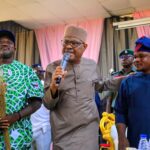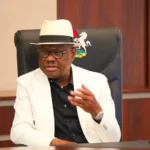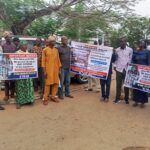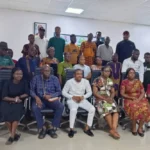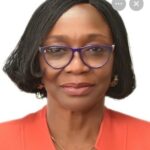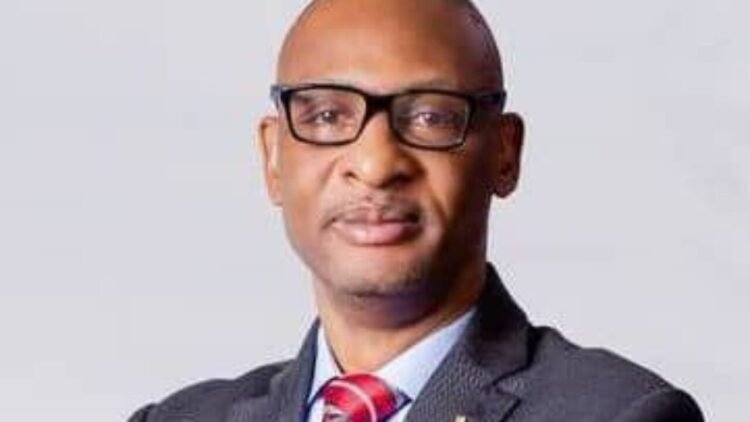By Rukayat Moisemhe
Top economists on Friday made suggestions towards Nigeria’s economic recovery and stability as well as restoration of the confidence of citizens and investors in the economy.
They spoke at Proshare’s 2024 Economists’ Conference with the theme: “Policy Crossroads: The Choice between Strangulation and Expansion”.
The conference was virtual.
The Chairman of Proshare, Mr Olufemi Awoyemi, said that President Bola Tinubu’s administration courageously introduced the right policies.
He, however, urged right sequencing of government policies to achieve desired results.
According to him, wrong sequencing of right policies could lead to a downturn in the disposable income of citizens.
Awoyemi urged that government’s discharge of responsibilities must come with the right signaling, sequencing and communication to achieve target goals.
He said that trust deficit between citizens and governments was widening.
Awoyemi said that there was the need to restore confidence in Nigeria’s economy, its currency, financial markets and productive entities.
Mr Bismarck Rewane, Chief Executive Officer (CEO) of Financial Derivatives Company, said that economic stability and growth would require an investment strategy supported by the private sector.
He said that Nigeria must begin to revive its moribund assets, use digital technology to drive growth, reduce trust deficit between government and citizens and provide clarity on economic policies.
According to Rewane, the country needs institutional reforms to ensure that policies are impactful.
He added that Nigeria must reduce income inequality and use revenue proceeds of returns to lift everyone.
“You cannot have price control commodity board when you are trying to encourage friendly investments; hence, policymakers and regulators must intervene positively and not shackle investors and investments.
“Policies do not need to be changed. They may need understanding, sequencing and tweaking along the way to ensure we get to where we are going.
“There is also the need for skillset and competencies that understand the country’s background and have the ability to solve the issues at the time of stress,” he said.
Dr Ayo Teriba, CEO of Economic Associates, said that industrialisation as an end to the country’s problems was no longer feasible since products were being replaced with services.
He said that Nigeria should find a way to reduce dependence on production and look for post industrial pathways to avoid getting stuck.
“We must look at countries that are not in recession but are growing steadily, and we would find that they are not dependent on production anymore.
“Nigeria must also begin to ensure that balance sheet management is wholly done and not focused on the debt part or income statement alone.
“The country should also explore possibilities of asset centrism,” he said.
Dr Tilewa Adebajo, CEO of CFG Advisory, said that illegal ways of doing things by some unpatriotic citizens, as well as failure to address salient issues by governments would result in economic challenges.
“Massive distortion of ways and means needs to be addressed, and what is important to address is the sincerity of the government to clean up the mess and bring ourselves out of the corner we have boxed ourselves into.
“Another dilemma is that we have not been able to save as some other commonwealth countries.
“The policy choices we have to make are limited, and they are going to be hard choices.
“We have to endure an 18-month economic recovery period but government has to be sincere,” he said.
Dr Oyeyemi Kale, Chief Economist at Afrexim Bank, emphasised the need to reset the country’s macroeconomic system through coordinated and harmonised policies that would carry every sector along.
He also called for focus on sectors that could grow gross domestic product and shore up exports at the same time.
Dr Ogho Okiti, CEO of Think Business Africa, said that organised fiscal policy and expenditure would help the economy.
“Government has focused on monetary policy measures but we need balanced concrete fiscal measures,” he said.
Dr Tope Fasua, Special Adviser to Tinubu on Economic Matters, said that the country was at a crossroad pointing to growth.
He, however, said that there were behavioural changes that both governments and citizens must begin to embrace.
“The global economy is finding it hard to shake off the impact of COVID 19.
“The ways and means were not merely pocketed, and government has been fairly prudent in terms of fiscal management.
He said that it was time to assess and re-assess fuel subsidy removal and exchange rate floatation policies. (NAN)(www.nannews.ng)
========
Edited by Ijeoma Popoola


